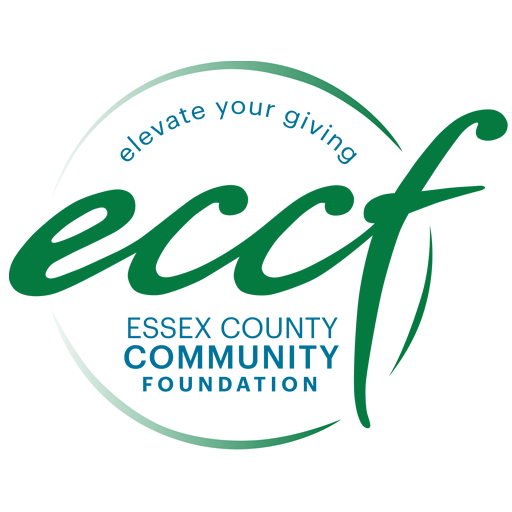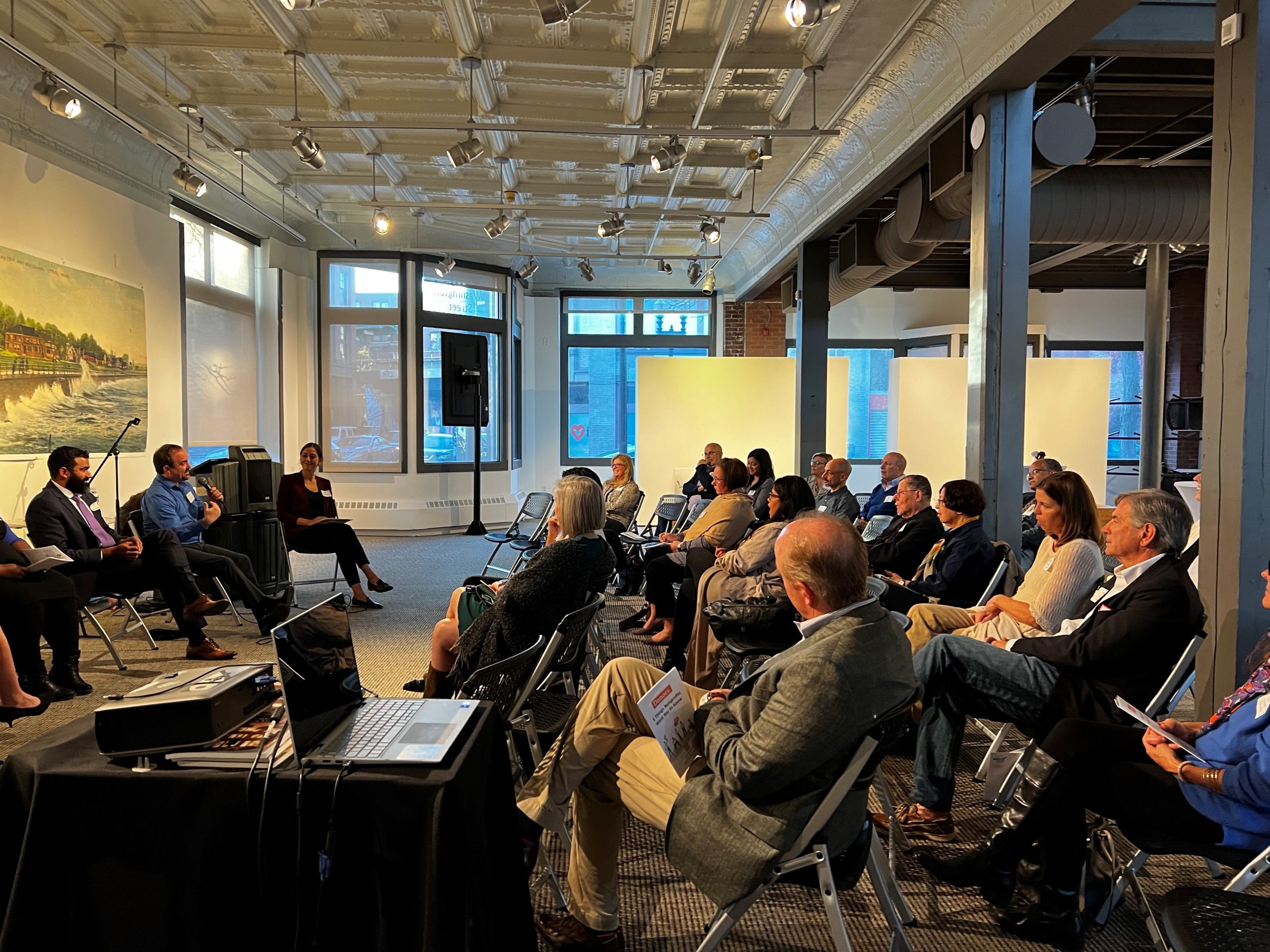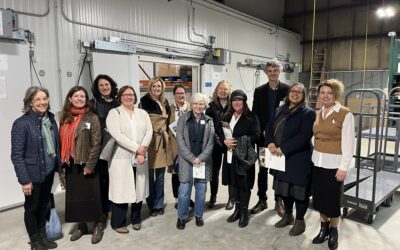Nonprofit leaders talk candidly about what they need to succeed
By Michelle Xiarhos Curran
When donors and nonprofit leaders engage in open and honest conversation, philanthropy has the potential to become a truly powerful tool for creating sustainable change in our communities.
Over the course of 15 years, the Center for Effective Philanthropy (CEP) – a nonprofit focused on helping individual and institutional donors improve their effectiveness – has collected candid, anonymous feedback from more than 100,000 nonprofit leaders, who revealed some realities that often go left unsaid in dialogue with funders.
The resulting report, “5 Things Nonprofits Want You to Know,” framed the context for a recent ECCF event to which donors and fundholders were invited to hear from a remarkable panel of local nonprofit leaders, who shared their own real-life experiences and thoughts on the dynamics between organizations and those who fund them.
The conversation, which took place Nov. 3 at the Lynn Museum, was moderated by Mena Boyadzhiev, director of assessment and advisory services at CEP.
“We put this together because it’s really hard to get candid feedback from people you fund,” said Boyadzhiev.
Panel members Andrew DeFranza, executive director of Harborlight Homes; Jadihel (Jadi) Taveras, head of school at Esperanza Academy; Felicia Pierce, chief program officer at North Shore Community Development Coalition and Tiffany Nigro, executive director of Pettengill House, shared their own, very honest perspectives on the five major themes revealed in the CEP report, which include:
- Understanding the needs of the constituents that nonprofits are serving is essential.
- Strong relationships between donors and nonprofits are grounded in understanding and openness.
- Generous, unrestricted financial support best enables nonprofit leaders to strengthen their organizations.
- Most nonprofits want to assess their performance so they can learn and improve, and they could use more support to do this.
- Providing support beyond money can help nonprofit staffs strengthen their skills, make important connections and better pursue their missions.
These nonprofit leaders told engaging and poignant stories of how understanding, curiosity, trust and partnership have strengthened philanthropic impact, and, in some circumstances, how a lack of these things have limited philanthropy’s potential or, worse, have caused nonprofits and donors to part ways.
“I look at relationships with donors as a family relationship,” said Pierce, who heads all community programming at the North Shore CDC, an organization that invests in neighborhoods to create thriving communities. “We are so excited that there are donors that are willing to partner with us, to come to our buildings, and meet the people we serve.”
Events like these are part of ECCF’s aim to support authentic connections between nonprofits and donors. By lifting up the work of Essex County’s incredible nonprofits and inspiring donors to dig deeper into their missions and needs, we hope to help foster a stronger sense of community – a feeling that we’re all in this together – when it comes to charitable giving.
“Philanthropy has a distinct role to play in improving our communities,” said ECCF President and CEO Beth Francis. “But it must be effective philanthropy. We’re learning that a donors’ curiosity and flexibility can play a major role in how impactful their giving is.”
Nonprofit leaders say that when donors take the time to truly understand the circumstances of their constituents and are open to new ideas and ways of doing things, they can become incredibly strong, effective allies.
“By understanding the circumstances, now the donor has partnered with us,” said Tavares, who has led Esperanza, a tuition-free, all-girls middle school in Lawrence, for nearly five years. “And it feels really good to be in partnership.”
During the discussion, panel members also emphasized the critical nature of unrestricted gifts – gifts made without limitations on how the money is spent. These gifts not only establish a sense of trust, but they also give nonprofits the ability to respond to community need more effectively.
“Unrestricted funds are so important to our work because it’s what sustains our work,” said Pierce.
DeFranza, whose organization develops, manages and advocates for quality, service-enriched housing that is affordable and inclusive, was quick to point out, however, that “unrestricted” does not equal “unaccountable.”
“It’s not just that donors are throwing gifts into the air,” he said.
Tavares told the story of an unrestricted gift that led to Esperanza’s hugely successful Music Therapy program.
“That unrestricted gift gave me the freedom to go ahead and create something for the community,” he said.
And it’s not just financial support that helps these organizations meet their missions. Gifts of time and talent are vital to nonprofit capacity, as is helping to connect nonprofits to others with resources to support them.
“We can only do so much as one agency, but everyone has their own network,” said Nigro, who heads Pettengill House, an Amesbury-based social service agency that serves nine Essex County communities. “Those ties are really important at the local level and at the state level.”
“This is very refreshing to hear what you all had to say,” said ECCF fundholder Jim Rose at the close of the discussion.
ECCF anticipates this to be the first of many such conversations that will increase opportunities for donors, fundholders and nonprofit leaders to connect, learn from one another and create change together.
“Events like this help bring all pieces of the puzzle together,” said Stacey Landry, ECCF’s vice president for advancement and philanthropic services. “This is ECCF’s sweet spot, connecting the dots, creating community and supporting people and organizations as they figure out how to best work together.”
About ECCF
The mission of Essex County Community Foundation is to inspire philanthropy that strengthens the communities of Essex County. We do this by managing charitable assets, strengthening and supporting nonprofits and engaging in strategic community leadership. Since 1998, ECCF and its family of 275 charitable funds have granted $136 million to nonprofits, schools and students in Essex County and beyond. Our ultimate goal is to have 34 thriving cities and towns in Essex County and to improve the quality of life for the region’s nearly 800,000 residents. Learn more at eccf.org.



